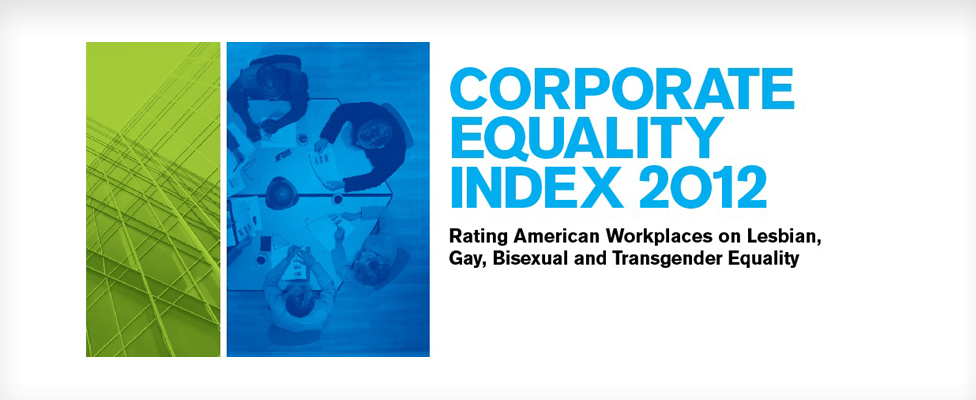The Best (and Worst) Companies
A total of 850 businesses have been rated in the HRC’s 2012 Corporate Equality Index (CEI), a report that scores corporate America based on policies for LGBT workers and their families. Since the Index was first introduced in 2002, when only a handful (13 to be exact) of businesses achieved a top score, HRC has been chronicling changes in workplace acceptance and support for the community – a transformative story, to say the least. Today, 190 corporations receive the highest marks, including 10 of the top 20 Fortune 500 companies.
“Corporate America is leading the charge for equality in the workplace,” explains Joe Solmonese, HRC president. “We commend the businesses that participated in the CEI. They understood that LGBT-inclusive workplace policies are the right thing to do and good business practices.”
In Philadelphia, both GlaxoSmithKlein and Morgan Lewis & Bockius received 100-point ratings, along with Campbell Soup Co. in Camden. Other companies with top ratings include Apple, Abercrombie & Fitch, American Express, Barnes & Noble, Caesars Entertainment, Best Buy, AT&T, The Gap, ING and Kimpton Hotels, among almost 200 others.
And companies with regional interests that scored well (60 or higher) include Ballard Spahr (90), Comcast (80), Drinker Biddle & Reath (90), Duane Morris (85), Lincoln National Corp (60), Pep Boys (70), Pepper Hamilton (90), PPL Corp (60), SAP America (90) and Subaru of America (85)
Four main criteria were used this year to rate the companies, including internal and outward support for LGBT issues and employees, including benefits for same-sex spouses and transgender people, and workplace regulations that prohibit discrimination based on sexual orientation and gender identity.
The new report found that while non-discrimination policies have become pretty standard in the last decade, half of the Fortune 500 companies now also include gender identity in these policies. And the number of Fortune 500 companies that offer domestic partnership benefits has also increased – by 76 percent – in the last 10 years.
Perhaps the greatest strides come for transgender-inclusive healthcare. Companies now offering comprehensive healthcare coverage to transgender employees has increased from 85 last year to 207 in 2012.
Despite the achievements measured in the CEI, in the United States today, LGBT Americans can still be fired in 29 states on the basis of their sexual orientation and gender identity, even though almost 90 percent of Americans think that it’s illegal to fire someone based on these factors under federal law. And almost 80 percent assume that state law also protects LGBT workers, but that’s simply not true. Pennsylvania is one of the states that protects neither sexual orientation nor gender identity. Neither does nearby Delaware, Maryland and New York.
For companies that rate lowest on the index (zero points), including nearby Airgas in Radnor and AmerisourceBergen in Chesterbrook, corporate infrastructure is considered very unfavorable to LGBT employees, with little or now security against termination or even adequate benefits for same-sex couples.
Other local companies in the Philadelphia region on the lower-end of the index (50 points or less) include Crown Holdings (15), Rite Aid (45), Saul Ewing (30), Severn Trent Services (50), Sunoco (15), UGI Corp. (30), Unisys (40) and Universal Health Services (15).
Click here to download the complete report.



